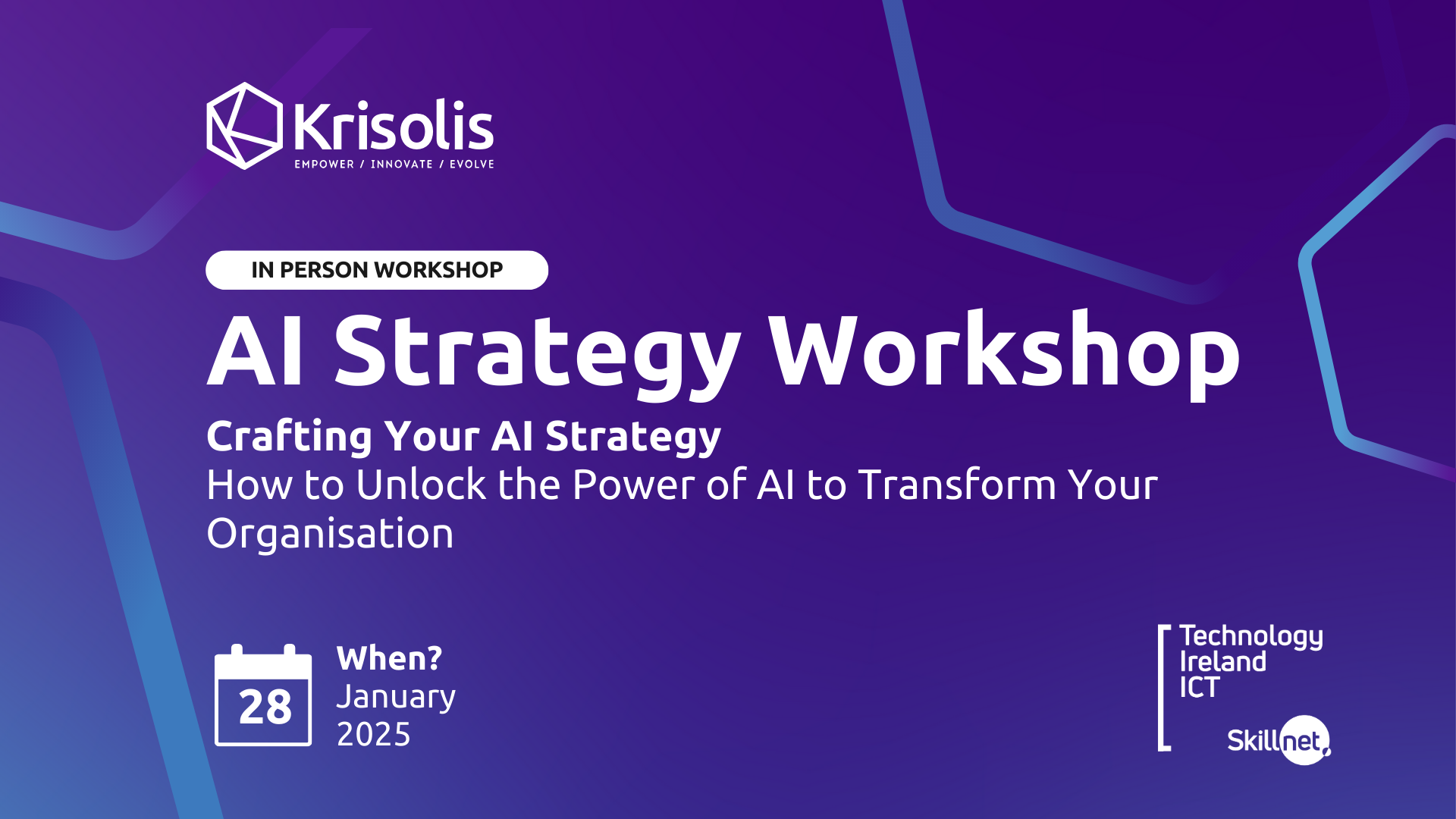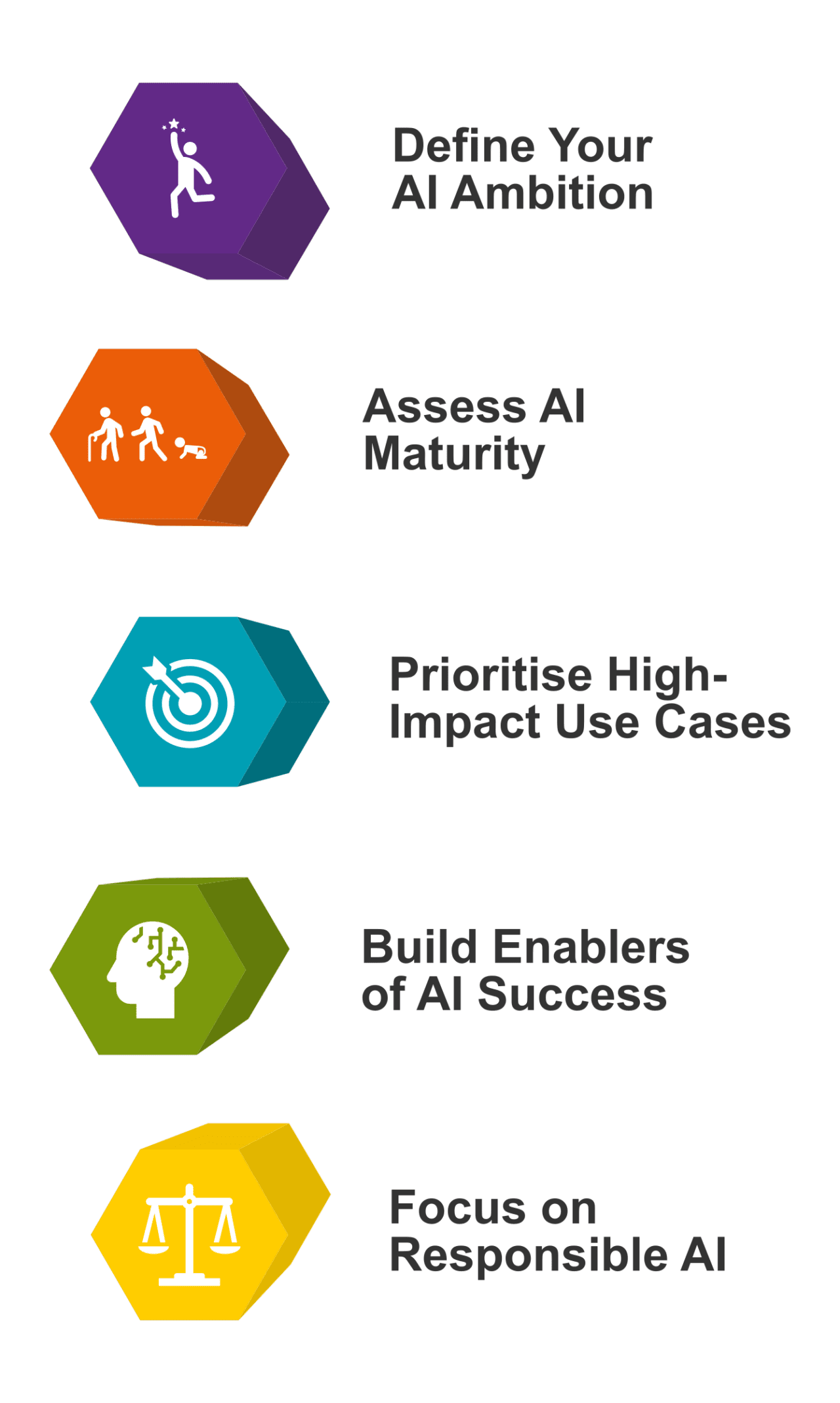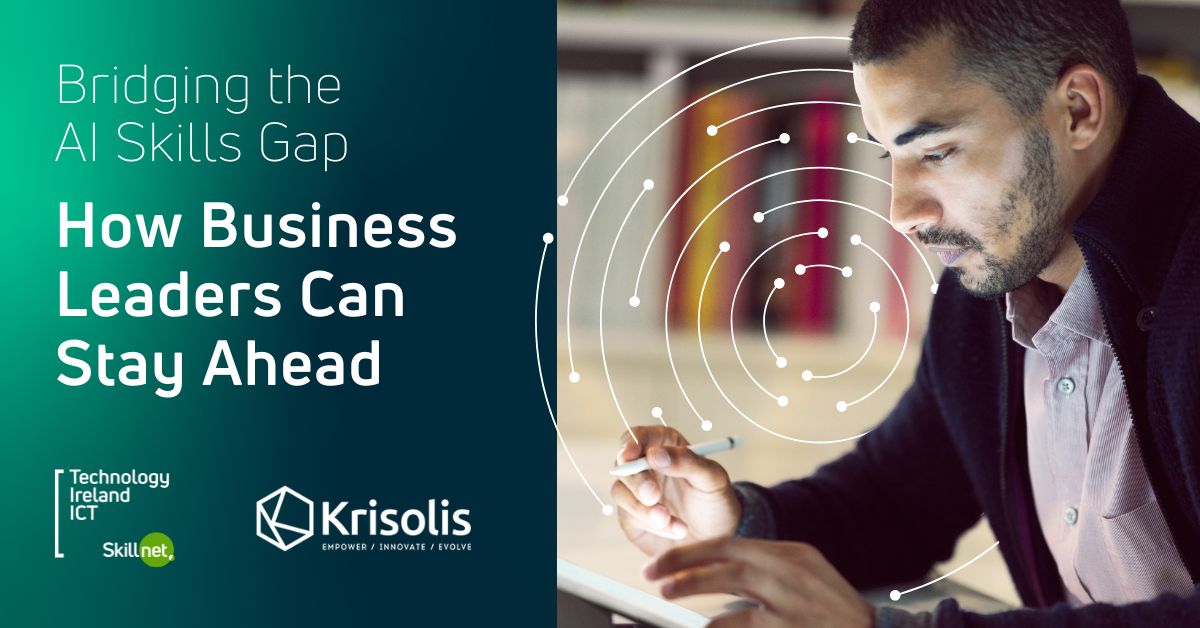Innovating with AI: Crafting Strategic Roadmaps for Organisational Success

Artificial intelligence (AI) is no longer a futuristic concept; it’s a transformative tool reshaping industries and redefining how organisations operate right now. From streamlining operations to creating new revenue streams, AI is unlocking unprecedented opportunities. However, harnessing its potential requires more than just adopting the latest technology—it demands a clear and robust AI strategy.
At Krisolis, we’ve guided organisations of all sizes and sectors on their AI journeys. Based on all of the lessons we have learned from this, here is our framework for crafting an AI strategy that delivers measurable value and aligns with long-term goals.
Why Do Organisations Need an AI Strategy?
One of the first questions clients ask is: “Do we need a separate AI strategy?” The simple answer is yes, but the detail in your strategy should reflect your organisation’s specific needs. AI holds immense promise, but adopting it without a clear plan can lead to wasted resources, legal challenges, and missed opportunities. A strategic approach ensures that AI initiatives are purposeful, value-driven, and integrated into the broader organisational vision.

Key motivations for developing an AI strategy include:
- Complying with the AI Act and GDPR
- Unlocking new data-driven opportunities for growth and impact.
- Gaining a competitive edge through innovation.
- Enhancing efficiency and reducing operational costs.
- Improving customer or stakeholder experiences with personalisation and predictive insights.
- Mitigating risks, including malicious use of AI against your organisation.
- Ensuring ethical, responsible, and transparent AI applications.
The Pillars of a Successful AI Strategy
Whether you’re a corporation or a public service provider, large or small, the following pillars form the foundation of an effective AI strategy:
- Define Your AI Ambition
Explore how AI will support your goals. This could range from optimising internal processes to becoming a leader in AI-powered products and services. Aligning AI initiatives with organisational objectives ensures focus and coherence. - Assess AI Maturity
Understand your current capabilities by evaluating data quality, technology infrastructure, staff skills, and cultural readiness. This “as-is” assessment provides a baseline for measuring progress and identifying gaps. - Prioritise High-Impact Use Cases
Not all uses of AI deliver equal value. Start with projects that are feasible within your current resources and demonstrate clear business or operational impact. Early successes build momentum and internal support. - Build Enablers for AI Success
Establish critical enablers like robust data management policies, ethical guidelines, governance frameworks, and AI-literate teams. These elements create a foundation for sustainable and scalable AI implementation. - Focus on Responsible AI
Build systems that are transparent, fair, and accountable. This not only meets regulatory requirements but also fosters trust among users, customers, and stakeholders.

From Vision to Execution: Deploying AI Strategically
Once your strategy is defined, execution becomes the key focus. A phased roadmap ensures progress from planning to measurable outcomes:
- Information Gathering: Engage stakeholders across departments to uncover opportunities, challenges, and risks.
- Workshops and Brainstorming: Collaborate with experts and employees to identify realistic AI use cases aligned with your goals.
- Refine Your Roadmap: Prioritise initiatives based on impact and feasibility, ensuring alignment with your AI maturity.
- Pilot and Scale: Start small, test AI applications in controlled environments, and scale successful projects incrementally.
The Role of AI Ethics, Governance, and Environmental Impact
Responsible AI use is critical, regardless of the industry. Frameworks like the EU AI Act provide guidance for building AI systems that are fair, transparent, and compliant with legal standards. By embedding ethical principles such as accountability, data privacy, and non-discrimination, organisations can ensure that their AI initiatives contribute to long-term trust and sustainability.
Equally important is managing the environmental impact of AI systems. Training and deploying AI models can require significant computational power, leading to high energy consumption and carbon emissions. Organisations can adopt green AI practices, such as optimizing algorithms for efficiency, leveraging renewable energy for data centers, and monitoring AI’s carbon footprint. By designing AI systems with sustainability in mind, businesses not only reduce environmental impact but also align with global sustainability goals, establishing themselves as responsible leaders in an AI-driven world.
The Bottom Line
AI isn’t just a technology—it’s a catalyst for innovation and transformation. But its value depends on how it’s implemented. Organisations that approach AI strategically, focusing on measurable outcomes, ethical practices, and sustainability, will be best positioned to thrive in the AI era.
At Krisolis, we combine deep technical expertise with practical insights to help organisations craft AI strategies that deliver real value. Whether you’re starting your journey or scaling AI initiatives, our team is here to guide you every step of the way.
Ready to unlock AI’s potential? Email our Strategy Team on strategy@krisolis.ie to set up a meeting to discuss your 2025 AI Strategy and Implementation needs.
Join us for our AI Strategy Workshop on January 28th, 2025.



